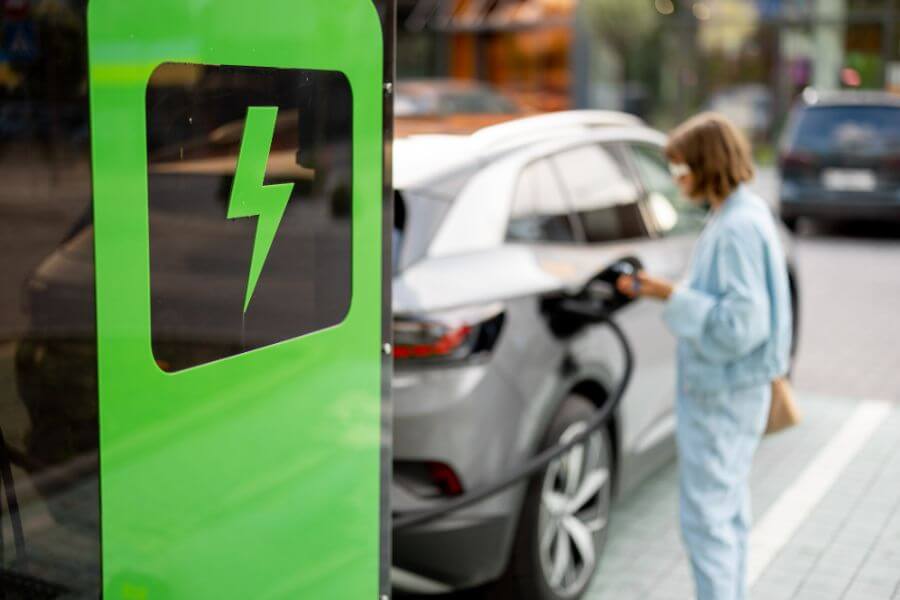

Electric cars offer their owners multiple benefits, ranging from fuel economy to reduced pollution. Car ownership comes with necessary costs. With traditional vehicles, you need to worry about the price of gas. With electric vehicles (EVs), you can skip the stops at the gas station, but you need to account for the cost of charging your vehicle. Why does it make sense to buy an electric car? How much electricity does an EV use? Do electric cars increase your electric bill? Get a comprehensive look at how EVs save you money and the cost to charge an electric car.
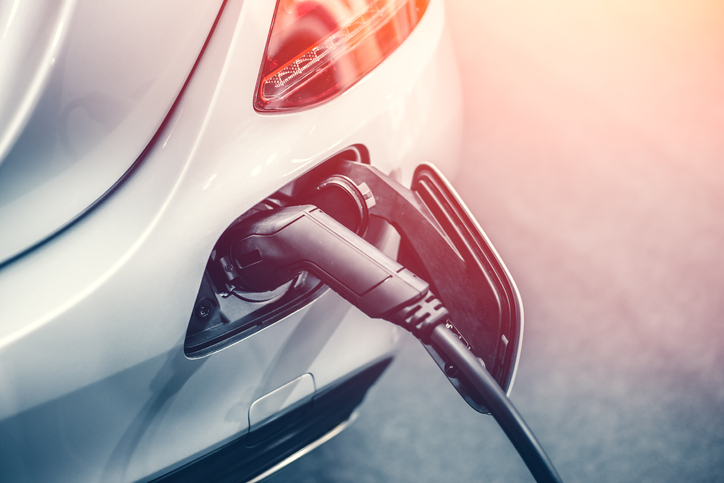
Why does it make sense to consider buying an EV? Consider these ways electric vehicles save you money and improve your driving experience.
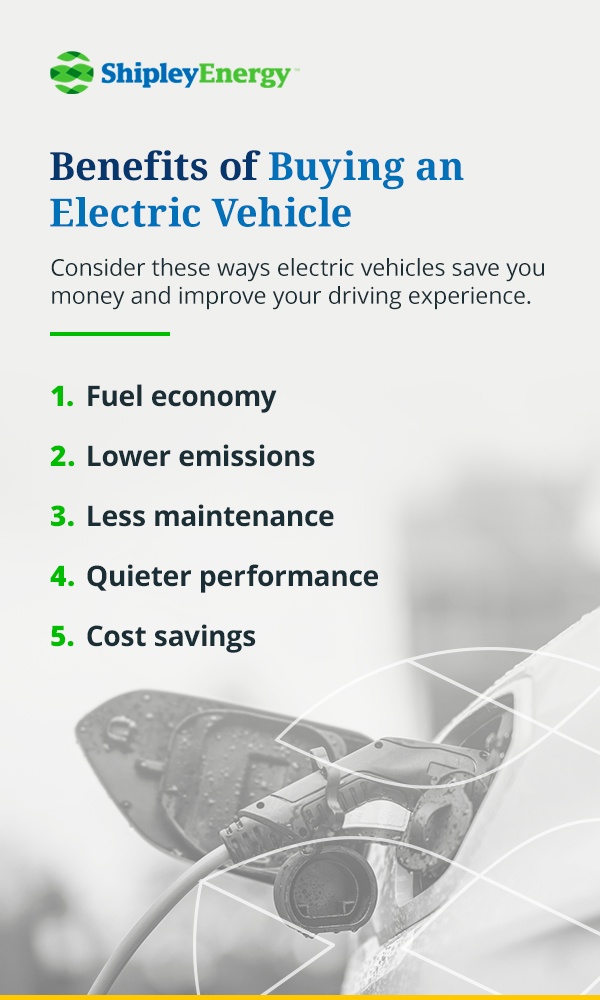
The cost of charging an electric car depends on various factors. How often do you need to charge the vehicle? How much power does an electric car use? How much does electricity cost in your area?
How often your EV needs charging will depend on how far you plan on driving it. If you are going on an extended road trip, you’ll need to make more stops for charging than if you are only using the car to run errands close to home. Nationwide, the average cost of electricity is $0.12 per kWh. At that rate, someone who drives their EV 15,000 miles in a year will pay approximately $540 per year, or $45 per month, to power it. That results in substantial savings, as someone driving a gas-powered car over the same yearly distance will pay approximately $1,400 in fuel costs.
Costs can also vary, depending on where you charge your EV. At-home charging is a major convenience factor for EV owners. Instead of stopping at a gas station, you can plug your car in at home. If you use your home charger, you are paying for the electricity the car needs to charge.
To plug in at home, you will need an electrical outlet near where you park your car, either outside or in your garage. At-home charging can be level 1 or level 2. Most EVs come with a level 1 connector kit, allowing users to plug the car into a standard outlet. You also have the option of investing in a level 2 charger for your home, which increases the vehicle’s miles of range per hour. A wall-mounted level 2 charger will cost $500 to $700 and require professional installation, which will incur additional costs. DC fast charging is another option, most frequently found at public charging stations, which can give cars enough charge for 50 to 90 miles within half an hour.
Most electric vehicle drivers do 80% of their charging at home, which means you will be paying your standard electricity rate to charge the car. Your utility may even offer you incentives that will help EV owners capture savings. If your electricity costs $0.12 per kWh and you need to charge a 24 kWh battery fully, the total cost will be $2.88.
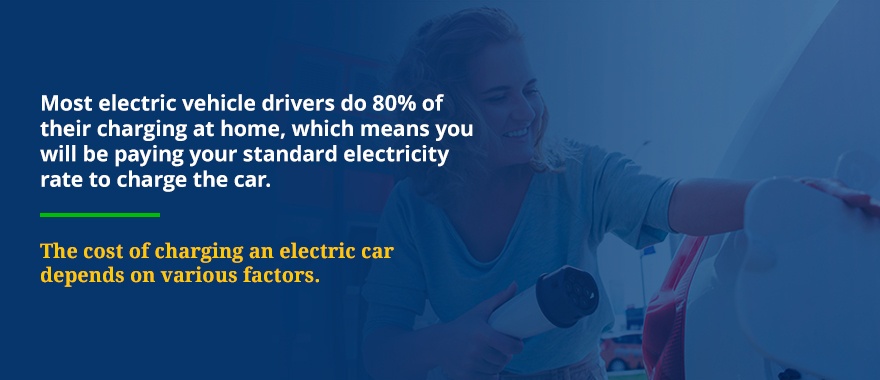
If you’re considering buying an electric car, you should also think about the cost of using a public charging station. While you might do most of your charging at home, sometimes it may be more convenient or even necessary to charge up at a public station. There are thousands of electric vehicle charging stations across the United States. You can opt to pay for public charging a few different ways. If you only need an occasional charge, paying as you go makes the most sense. Pay-as-you-go prices might have a per-minute or per-kWh structure. The price of charging depends on your location. Do you live somewhere, like California, where electricity costs are higher than the national average?
If you often need to use public stations to charge your EV, you might want to consider a subscription payment model. Monthly membership fee prices typically range from $4 to $7.99. However, in some cases, you may be able to take advantage of free public charging stations.
Whenever you use an electronic appliance, you’ll pay for that energy on each month’s electric bill. As a result, you may be wondering about at-home charging’s effect on your utility bill. Many people opt to charge their EVs at home overnight. It can take three to 12 hours to fully charge your EV’s battery, depending on the car model and charging level. How much electricity does an EV use? It depends on the EV you buy, how often you drive it and your electricity costs. Electricity rates will vary, depending on where you live, but there does tend to be less fluctuation in the price of electricity than that of gasoline.
To understand the cost of charging your EV, you will need to know your kWh rate. Your electric bill will show you how many kilowatt-hours you use per month, and the utility charges based on your usage. Some electric utilities offer EV owners discounts for charging their vehicles. Assuming you drive your EV the average 15,000 miles per year with the estimated $540 in annual charging costs, you can expect to see that dollar amount reflected on your electric bill: $45 per month.
Drivers save an average of $632 per year when they choose an EV over a gas-powered vehicle. You can even receive federal and state tax credits, which incentivize EV purchases. However, you still need to pay to charge your electric vehicle. How can you save on the charging costs for your EV?
Interested in learning about green electricity plans? Enter your contact information, we’ll answer your questions so you can make an impact!
How much you pay for electricity largely determines the cost of charging your electric vehicle. Many people assume this is out of their control, but in many cases, you can comparison-shop for an electric provider. Changing providers can help you reduce the amount you spend on electricity and charging your EV at home. Here are a few shopping tips.
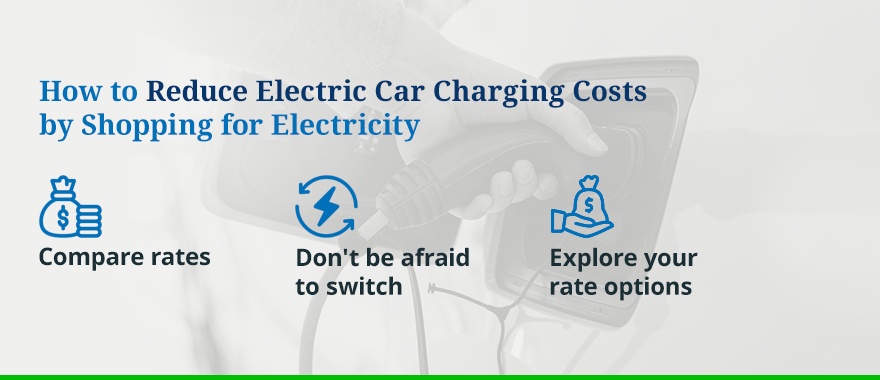
Your electricity rates at home can play a major role in the cost of charging your electric vehicle. Shopping around for a supplier can result in significant savings. If you live in the York, Penn., region, consider Shipley Energy. We work to offer our clients low electricity rates and allow you to lock in your rate for up to 24 months. Use your ZIP code to find out the plans and prices available for your home. You can also get in touch with us, online or via phone, with any questions about our service and how we can help you.
Contact us with any questions you have or to get started.

Since deregulation in PA, I review my energy (Gas & Electric) at least once a year. I was amazed with how easy it was to convert my electric service to Shipley Energy. They...
Read moreSince deregulation in PA, I review my energy (Gas & Electric) at least once a year. I was amazed with how easy it was to convert my electric service to Shipley Energy. They not only had one of the lowest rates, but also the online process was quick, very easy, and I received emails explaining my account had been created and the cancellation to my previous supplier. Would definitely recommend to family and friends shopping for a new utility provider
Read less
I am pleased to be able to support a local energy company and doubly pleased that Shipley offers a green electricity alternative.
James S.